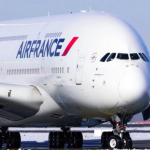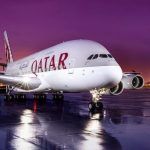
Industry News: 26th May 2020
ABU DHABI, 25th May 2020 (WAM): Dubai’s Department of Tourism and Commerce Marketing (Dubai Tourism) held a virtual meeting with key aviation and hospitality partners to discuss current and post-pandemic strategies and joint initiatives aimed at ensuring the tourism industry’s gradual return to normalcy.
The meeting also discussed global efforts to minimise the transmission of COVID-19 and precautionary measures deployed to safeguard the health of communities across the UAE.
On the same day the UAE Government announced that the number of COVID-19 tests has broken the two million mark, reaching 2,044,493 screenings as part of the national plan to intensify coronavirus detection. Three deaths on Sunday due to COVID-19 complications, took the total number of deaths to 248, and 601 individuals have fully recovered from the virus, bringing the total number of recoveries to 15,657. There are 14,402 patients from different nationalities are currently receiving the necessary treatment.
Attendees the meeting hosted by the Director General of Dubai Tourism, included key executives of hospitality groups including Jumeirah, Emaar Hospitality Group, Marriott International, Millennium, Accor, JA Resorts and Hotels, Kerzner International, Al Habtoor Group, Wasl and Rotana, in addition to aviation sector players like Emirates, Flydubai and Dubai International Airport.
The report released by state newsagency WAM said partners were briefed on the phased approach being adopted to reopen the tourism sector in Dubai, and the marketing communications and activities in progress across key markets to reinforce Dubai’s high global profile including the ongoing #TillWeMeetAgain digital activation.
With the hospitality sector being a key pillar of Dubai’s economy, the discussions between Dubai Tourism and partners focused on the steps being taken to pave the way for the reopening of hotels and other tourism facilities across the city, while ensuring adherence to the strictest guidelines and providing opportunities to revive domestic market demand.
As part of overall efforts to create a positive perception and a conducive environment aimed at instilling confidence among travellers who plan to visit Dubai, the meeting also looked at precautionary measures that have been implemented, both at a citywide level and across specific sectors including tourism, which represent critical touchpoints for visitors and residents during their stay.
One of the key priorities from a marketing perspective, the meeting heard, is to emphasise the safety and security that Dubai provides, and the clear stringent health and safety protocols issued by the Dubai Health Authority based on international standards and best practices aimed at containing the contagion. The meeting also discussed the mechanism to ensure adherence to the guidelines, practical solutions to scan and monitor passengers at Dubai International Airport and the effective management of contact tracing in compliance with privacy standards, following the resumption of air travel.
(continued below advert)
***
***
All participants at the meeting expressed their appreciation for the way in which government – both at the Dubai and UAE level – have dealt with the threat of COVID-19 including the rational policy decisions that have allowed robust management of the health crisis and mitigation of the economic repercussions by allowing for the gradual reopening of vital sectors like tourism.
Industry executives at the meeting also agreed that the postponement of Expo 2020 was prudent and well-received. It provides the opportunity to hold the event in a more normalised global environment where all countries can actively participate, making it a more representative Expo for the world in 2021. The businesses also reiterated their support to Dubai Tourism to kick-start the sector with collaborative development of promotional programmes and strong customised packages that take into account the current realities of the global market. The stakeholders were unanimous that there was positive sentiment surrounding Dubai as a key destination in the international circuit thanks to the city’s world class health infrastructure, and protocols and processes deployed during the management of this pandemic.
Helal Saeed Almarri, Director General, Dubai Tourism, said: “It must be emphasised that the health and safety of our residents and guests will always remain our top priority as we continue to work with the industry and our government partners not just during this critical period but beyond, to develop innovative approaches, real-time responses, and proactive yet prudent initiatives to ensure that Dubai remains at the forefront of the world’s leading destinations in line with our strategy.
“As we look ahead to a gradual reopening of tourism, we will focus on the key elements that have ensured the industry’s success over the past decade – creating unique value and delivering an uncompromised guest experience. To achieve this, we rely on the solidarity of our stakeholders who have always played a pivotal role. We hope they will continue to lead from the front in positioning Dubai as a must-visit destination.”
Paul Griffiths, CEO of Dubai Airports, said: “Dubai International Airport is prepared to welcome visitors as soon as airports around the word start reopening and pave the way for a phased resumption of air services. As health and hygiene standards will play an influential role in encouraging people to travel, we have put in place a set of health and safety protocols at our airports including all necessary quarantine arrangements and the implementation of sanitisation and disinfection measures to reassure tourists that Dubai is one of the safest destinations to visit. We will also continue to receive incoming flights from select destinations, operate cargo flights, as well as flights to repatriate expatriates and guests to their home destinations.”
Adnan Kazim, Chief Commercial Officer at Emirates Airline, said: “The health and safety of our customers and employees remain our top priorities across our operations, and Emirates has implemented comprehensive measures at every step of the customer journey. This includes thermal temperature scanning before check-in, the mandatory use of masks and gloves for everyone at the airport, protective suits for our crew and ground employees, physical distancing protocols, modified services to reduce contact, enhanced cleaning of all our touch points, and much more.”
Ghaith Al Ghaith, CEO of flydubai, said: “Since the flight restrictions came into effect, we have operated more than 100 repatriation flights to 19 different countries enabling 14,000 citizens to return home. flydubai will continue to work closely with its strategic partners to ensure that all safety measures are in place in line with international standards when flight restrictions are lifted.”
Mohammed Al Habtoor, Vice Chairman and CEO, Al Habtoor Group, said: “Dubai with its wide experience in successfully dealing with challenging situations is capable of restoring tourism momentum and paving the way for the hospitality sector to returns to its previous state. This is also a view shared by our international hospitality partners who have placed great faith in Dubai’s resilience during tough times, as well as in its world-class healthcare system and the range of preventive measures taken across the city such as the effective and regular sanitisation and sterilisation programmes, that will help highlight Dubai as one of the world’s safest destinations.”
Mark Willis, CEO Middle East and Africa at Accor, praised the government’s efforts in reopening the markets and supporting the tourism sector: “Accor is committed to coordinating with Dubai Tourism and all related entities, from both government and private sectors, to ensure we are aligned in making the safety and well-being of our guests and team members our key priority”
Neal Jones, Chief Sales & Marketing Officer, Europe, Middle East and Africa (EMEA), Marriott International, said: “As an international chain that enjoys a longstanding relationship with Dubai, Marriott is committed to supporting the industry’s efforts to regain momentum by rolling out our own initiatives and packages to attract visitors to Dubai when the time is safe for travel.”




 Industry News: 23rd May 2020
Turkish Airlines has extended the suspension of its domestic flights until June 4 due to coronavirus (Covid-19) with international flights scheduled to resume on June 10.
According to a statement issued by the company, the suspension of domestic and international flights will be extended due to the pandemic. It had previously given a deadline of May 28, 2020.
The airline has a fleet of 350 aircraft serving 300 international destinations.
Currently, the Republic of Turkey’s Prime Ministry Privatization Administration owns a 49.12 per cent interest in THY, while 50.88 per cent of shares are publicly traded.
Turkish Airlines claims to have one of the best Business Class products in the world, , flies just about everywhere, offers several unique amenities, and promises bargain prices.
It is part of the Star Alliance is the world’s largest airline community, consisting of 26 members from leading companies in the global aviation sector.
It has said that in response to the pandemic, cabin baggage will now be placed in the hold, with luggage allowances increased by 8kg.
Industry News: 23rd May 2020
Turkish Airlines has extended the suspension of its domestic flights until June 4 due to coronavirus (Covid-19) with international flights scheduled to resume on June 10.
According to a statement issued by the company, the suspension of domestic and international flights will be extended due to the pandemic. It had previously given a deadline of May 28, 2020.
The airline has a fleet of 350 aircraft serving 300 international destinations.
Currently, the Republic of Turkey’s Prime Ministry Privatization Administration owns a 49.12 per cent interest in THY, while 50.88 per cent of shares are publicly traded.
Turkish Airlines claims to have one of the best Business Class products in the world, , flies just about everywhere, offers several unique amenities, and promises bargain prices.
It is part of the Star Alliance is the world’s largest airline community, consisting of 26 members from leading companies in the global aviation sector.
It has said that in response to the pandemic, cabin baggage will now be placed in the hold, with luggage allowances increased by 8kg.






